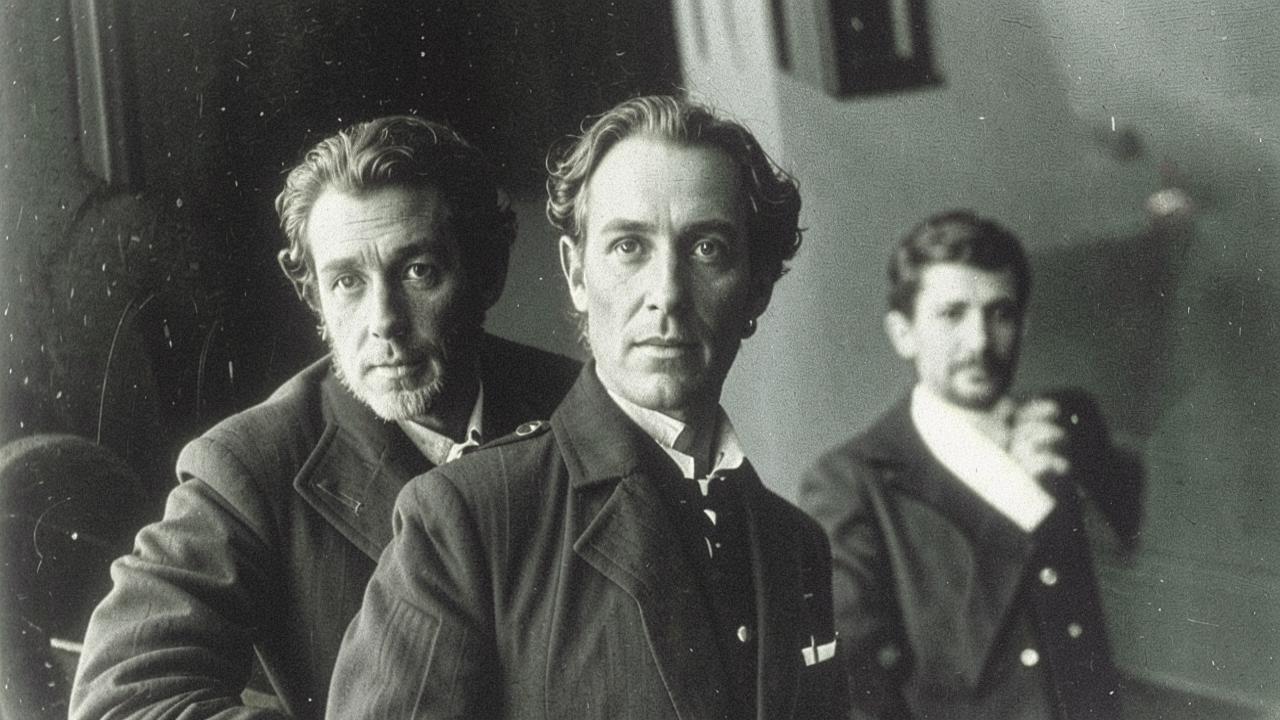Imagine you wake up at night. The rain is pounding outside your window. It’s dawning. In a couple of hours you have to get ready for work….
You lie there and think: “How come this is my life? That I go to my job every day, then I go to the gym or go out with friends. Then I come home, cook dinner and watch a TV show. It’s the same thing every day. Is this the life I wanted? Did I choose any of this, or did it just work itself out and I just went with the flow? What’s the point of my life if I die and there’s nothing left of me? What do other people find meaning in?”.

existential psychologist, expert of the online school of psychological professions “Psychodemia”
“Life becomes dull. What used to delight, no longer does. Nothing arouses interest. People around you seem superficial, because they don’t think about the same things you do. It seems impossible to go on living like this, but it’s not clear what could help you. This is roughly what an existential crisis can look like. Let’s find out how to recognize and overcome it”.
Co vám řekneme o
What is an existential crisis?
The term “crisis” comes from the Greek krïsis (decision, turning point) and denotes a state of abrupt change. The large universal dictionary of the Russian language defines it as “a severe state of something characterized by uncertainty, unclear prospects, unstable situation.”
There are normative crises in every person’s life. We are talking about those that should occur during the transition from one stage of development to the next. For example, age crises: one year, three years, six-seven years (when a child goes to school), adolescence, middle age and others. At each of these moments, a person faces new developmental challenges. Circumstances change. Such a crisis is a turning point that causes stress and requires time to adapt.

There are also normative crises related to the stages your family goes through: moving in with a new partner, getting married, having a child, the child goes to kindergarten, then to school, more children appear, you get divorced, etc. At times like these, all family members go through crises. But they are natural. Here, for the most part, people understand what caused a difficult period in life. This does not cancel the fact that they are stressed, but at least the reasons for it are understood. Existential crises are quite another matter .
The concept came to psychology from existentialism. This is a philosophical trend of the late XIX – early XX century. The concept of “existentia” was first formulated in the XIX century by the Danish philosopher Søren Kierkegaard. The word comes from the Latin existentia – “existence”.
Existentialism focuses on the uniqueness of human existence, on the subjective experience of existence.
In turn, existential crisis is understood as an internal conflict that a person experiences regarding his or her life and self-determination. It is manifested by the feeling that existence is devoid of meaning, the feeling of not understanding oneself and one’s identity. Such crises are accompanied by anxiety and stress. Often to such an extent that they disrupt the normal course of a person’s life and lead to depression.

Signs of an existential crisis
An existential crisis can be identified by the following symptoms.
- A sense of meaninglessness.
- A feeling of inner emptiness. It is often described as a “hole inside”.
- Fear of the uncertainty of the future.
- A general depressed state of mind.
- Thoughts of the meaninglessness of life.”
- A feeling of “living the wrong life”.
- A feeling of loneliness.
- Physical and nervous exhaustion, fatigue.
- A feeling of despair and hopelessness.
- A state of dissatisfaction.
- Lack of motivation to plan and realize the planned.
- Lack of interest in communication with other people.
- A feeling of being “unnecessary”.
Is an existential crisis dangerous?
Existential psychology believes that such crises are inevitable and even necessary. Thanks to them we grow as individuals.
In addition, difficult periods in our inner life indicate psychological maturation – we face difficult experiences when we are ready for them. At first glance, this idea may seem a bit magical, but everything is explainable. Our psyche has many defense mechanisms that it uses to keep out experiences that we can’t handle. Therefore, if we are faced with something, it means that we are already resilient enough to cope with it.
Once we go through a crisis, we will no longer be the same person we were. We will become wiser, stronger and form some new picture of the world, which will be deeper and more complex than the one we lived in before. However, this is with good fortune.
To constructively overcome the crisis, to burn off the destroyed illusions and to integrate the gained experience into our personality, we need a lot of psychological resources, which we do not always have.
Life makes its adjustments. World crises can occur simultaneously with personal ones. We need to solve problems in the family, work effectively, take care of loved ones… It is rare to have the opportunity to close ourselves in our shell for a couple of years and experience an existential crisis, reflecting and working through all the emotions.

Life is full of complexities and we can get “stuck” in a state of crisis. We will sink into a sense of hopelessness more and more. As a result, it will not only lead to a worsening of the crisis. It can lead to prolonged depression. This is the potential danger of an existential crisis. Therefore, it is important that the experiences remain bearable, and not destroy you from the inside.
What causes a crisis?
The world-famous American psychotherapist Irvin Yalom identifies four existential certainties, the collision with which causes anxiety and can provoke internal conflict. These are death, freedom, isolation, and meaning.
1. Death
Realizing the finitude of one’s life is a very difficult experience. Although we know that we will eventually die, to some extent we are still under the illusion of our own immortality.
It is very difficult to live with the idea that all of this is finite and can end at any moment. Therefore, the psyche usually does not allow these experiences close to us. This allows us to live, to plan, to make decisions, not to be in constant fear for ourselves and our loved ones.
When we face death (for example, losing a loved one), it causes fear and anxiety. There can be a conflict between the fear of non-existence and the desire to live.
2. Freedom
At first glance it seems that what can be scary about freedom? But we should realize that we are also talking about responsibility. When we are free, we make our own decisions. And, of course, we have to take responsibility for them. We have no one to blame but ourselves when we feel bad.
It can be very uncomfortable to realize that. There is a natural temptation to hand over responsibility for ourselves to someone or something. For example, there may be a flight into religion, addictions, or a relationship with a partner who takes over the parenting function. But the “trap” is that handing over responsibility is also a choice we make. We are still responsible for the consequences. What kind of conflict can arise here? Between the desire for freedom and the fear of being responsible for one’s own life.
3- Isolation (loneliness)
The essence of this given is that every human being is to some extent always alone with his or her feelings and experiences during the course of life. To avoid the underlying feeling of loneliness, he may turn to opposing defenses. For example, convincing himself that he does not need people, thereby isolating himself even more. He may also seek to merge with others. For example, entering co-dependent relationships and sacrificing his individuality for them.
The conflict here is between the desire to be understood by others and the impossibility of being fully understood.

4. Meaning
It is inherent in human beings to search for meaning in what they do, what they live for. This is our natural need, as we possess consciousness and strive for certainty. At the same time, no one knows an unambiguous answer to the question about the meaning of life.
Until the XX century, religion could give the answer to the Western society, but after the world wars and with the advent of technological progress, its authority was shaken. This was the reason for the emergence of the current of existentialism. Therefore, a human being has a conflict between the need for meaning and the inability to find it. How can one deal with such a crisis? One will have to find one’s own meanings. To answer this question for oneself.
Ways of overcoming existential crisis
Earlier we have understood what an existential crisis can be caused by. Realization of the finiteness of life, a sense of meaninglessness, fear of loneliness or responsibility. That is – a collision with existential givenness. Accordingly, the way out will depend on the conflict that underlies it.
For example, if the crisis was provoked by the loss of loved ones, which forced the person to face closer to the realization of the finitude of life, to get out of it he needs to internally reconcile with this, to learn not to fear death.
If the crisis is connected with an agonizing search for meaning and purpose in life? Here a person needs to reconcile with the lack of a universal answer. He will have to take responsibility for creating his own meaning through daily decisions and actions. In any case, going through a crisis is a lot of work.
What can help in overcoming a crisis?
1. literature and other arts
You can read books by existential psychologists. For example:
- “Saying Yes to Life”, Viktor Frankl;
- “Choice. On Freedom and the Inner Strength of Man,” by Edith Eva Eger;
- “The Science of Being Alive,” James Bugental;
- “Escape from Freedom,” Erich Fromm;
- “Gazing into the Sun. Life Without Fear of Death,” by Irvin Yalom.
In addition to books written by psychologists, existential issues are addressed in much fiction. For example, in the novels of Fyodor Dostoevsky, Leo Tolstoy, Hermann Hesse, Thomas Mann and, of course, the classics of existentialism: Jean-Paul Sartre and Albert Camus.
You can also read biographies and memoirs to learn through them how other people have dealt with similar experiences.
If you like movies or theater, great. Existential questions are very often raised here too. They have been addressed in the arts at all periods of history, long before the field of existential philosophy was formed.
Literature, film, theater, standup, philosophy lectures or interviews can all be supportive in times of crisis. If you feel even a little better from reading or watching it and get a sense of understanding by others, that’s what you need.

2. Psychotherapy
Working with a therapist or psychologist can be a good support in living through a crisis. A professional knows what to focus on in each case. He or she will be able to identify the central conflict more quickly. Make it visible to the person.
For example, in the case of a conflict caused by the fear of one’s own finitude, the psychologist will help the client to develop an awareness of his own mortality that will help him to live life more fully and increase its value, rather than frighten and paralyze him. In addition, it is important for us to go through the experience not alone – the therapeutic relationship and the presence of another has a healing effect in itself.
It is important to remember that it is perfectly normal to seek help. An existential crisis can be very distressing. Indeed, it is often accompanied by depression. There is no point in being a hero and “coping on your own”. Working with a psychologist can be a good support in this difficult period. It will help to overcome the crisis faster and come out of it with new knowledge about yourself.
3. defining and understanding your values
During an existential crisis, you may feel like you are “stormy”. As if you are confused in your desires, you do not understand what you want, you have lost your bearings.
In such a period it is important to find something to lean on. Your values can be such a support. There are various exercises to define them. Below I will cite one of them. But there is another important point. Often we know the most important things about ourselves without any exercises.
For example, if you have children, even when you are confused about your life and have a poor understanding of your needs, you are sure that you love them and want to spend time with them. You may also know for sure that you adore bike rides or trips outdoors. Even when you doubt everything, don’t know what you want or what you live for, these things bring you pleasure.
You can already rely on this knowledge about yourself. They tell you what’s important to you. This is something that is definitely worth maintaining in your life, even while you are “stormy”.
You can analyze what makes you happy or what you are sure of, make a list of such actions and hang it in a prominent place, so that you can often remember the things that are important to you and do something from it.
If you still have difficulty, you can resort to a more detailed values exercise.

Values exercise
A good way to identify your values is to look for qualities you like in other people that you would like to have in yourself.
Think of people you would like to be like, people you respect. Acquaintances, celebrities, even fictional characters from movies or books – you can take anyone. Make a list of these people.
Ask yourself questions about each of them: “What do I like about this person and their life? Which of his or her qualities would I like to have in myself?”. Write out these qualities and facts in free form.
For example: “He is creative (he draws and writes music)”, “He has a balance of different spheres of life (he has time to work, rest and spend time with friends)”, “He loves his work and develops in it”, “He lives in an apartment with designer renovation”.
Note: it is not so important what qualities a person really has. You may think that a person spends a lot of time with his family, but in reality it is not so at all. He just talks about it a lot.
It’s important to identify what you like, what you would like to add to your life. Then that quality fits.

As you make a big list of qualities and actions, you may see that some of them are repetitive. For example, you often admire other people’s career development. Then it’s definitely important to you.
Other qualities matter too. “Living in a nice apartment” is quite a stretch for a value. Maybe coziness is very important to you? Write out all the items in a separate list without repeating them.
For each item, ask yourself: “What could you do to get closer to this in your life? What small actions could help?”.
For example, discover the value of “Making time for family.” You can set aside specific days, hours that you will spend with your children. It is also within your power to start calling your parents more often. This will make life more in line with your values, and therefore more satisfying.
If your value is “a nice cozy home,” perhaps you could change something in your apartment to make it more cozy.
Make yourself a list of actions you could take and don’t forget to refer to it periodically. By following your values, you will gradually make life more meaningful, more often being “here and now” rather than in fears about the future.
Going through an existential crisis is never easy. It is a time when your life may seem prosperous and happy from the outside, while you are experiencing a lot of suffering. It is important not to devalue or minimize your feelings. Treat yourself with care and compassion. See a therapist if you feel that you are having a hard time, nothing pleases you and you have no energy.
An existential crisis is often like the hibernation that animals go into for the winter. And if we allow ourselves to stop, to become less productive and to “simmer” in our worries, rather than demanding from ourselves to pack up and live as before, we can come out of it with new strength, thoughts and knowledge. And also with wisdom that will allow us to live more meaningful and fulfilling lives.






